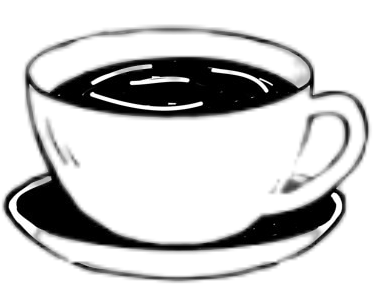
Why Can't Mormons Drink Coffee? A Personal Perspective
As a lifelong member of the Church of Jesus Christ of Latter-day Saints (LDS), commonly referred to as the Mormon Church, I have often encountered questions about our dietary guidelines, particularly the prohibition against coffee. This restriction stems from a health code called the "Word of Wisdom," which advises against the consumption of "hot drinks," interpreted by early church leaders as coffee and tea.
Understanding the Word of Wisdom
The Word of Wisdom is a section in the Doctrine and Covenants, one of the sacred texts of the LDS faith. Revealed to Joseph Smith in 1833, it provides guidance on health and dietary practices. In addition to advising against alcohol, tobacco, and "hot drinks," it encourages the consumption of grains, fruits, and the sparing use of meat.
Why Coffee and Tea?
The term "hot drinks" was clarified by early church leaders to specifically mean coffee and tea. This interpretation has been upheld over the years, leading members to abstain from these beverages. While the reasoning is spiritual, many members also note the physical and mental clarity they feel by avoiding caffeine-laden drinks like coffee.
Personal Reflections on the Coffee Prohibition
Growing up in the LDS community, avoiding coffee was a standard part of life. Social gatherings, family events, and daily routines were structured without the inclusion of coffee or tea. Instead, beverages like herbal teas, hot chocolate, and various fruit drinks became our staples.
In my teenage years, I began to understand the broader implications of this practice. It wasn’t just about following a rule but about embracing a lifestyle that prioritized health and obedience to spiritual guidance. This perspective fostered a sense of community among members, as we collectively adhered to these principles.
Navigating Social Situations Without Coffee
Abstaining from coffee can present challenges, especially in social or professional settings where coffee culture is prevalent. I’ve often found myself in meetings or gatherings where coffee is the central beverage. In such instances, I politely decline and opt for alternatives like water or herbal tea. Most people are understanding, and it often opens up conversations about my faith and its practices.
Health Benefits and Personal Well-being
While the primary reason for avoiding coffee is spiritual, there are health considerations as well. Some studies suggest that high caffeine intake can lead to increased anxiety, digestive issues, and sleep disturbances. By abstaining from coffee, I’ve noticed a more consistent energy level throughout the day and improved sleep quality. Additionally, avoiding reliance on caffeine has helped me develop healthier habits for managing energy and stress.
Community and Identity
The shared practice of adhering to the Word of Wisdom strengthens the sense of community within the LDS Church. It serves as a daily reminder of our commitment to our faith and to each other. This collective observance fosters unity and a shared identity among members worldwide.
Product Review Conclusion
Understanding the reasons behind the LDS Church’s prohibition of coffee provides insight into the faith’s emphasis on health, obedience, and community. For members like myself, it’s a practice that goes beyond mere restriction; it’s a commitment to a lifestyle that aligns with our spiritual beliefs and promotes overall well-being.
FAQ Section
Q: Why does the LDS Church prohibit coffee?
A: The prohibition stems from the Word of Wisdom, a health code revealed in 1833, which advises against the consumption of "hot drinks," interpreted by early church leaders as coffee and tea.
Q: Is the prohibition based on health concerns?
A: While health benefits are a consideration, the primary reason is adherence to spiritual guidance as outlined in the Word of Wisdom.
Q: Do all members strictly follow this guideline?
A: Adherence varies among individuals, but abstaining from coffee is a standard expectation for practicing members, especially those seeking to participate in temple ceremonies.
Q: Are there alternatives to coffee that members consume?
A: Yes, members often enjoy beverages like herbal teas, hot chocolate, and various fruit drinks as alternatives.
Q: How do members handle social situations where coffee is prevalent?
A: Members typically decline coffee politely and may choose alternative beverages. This often leads to discussions about their faith and practices.
